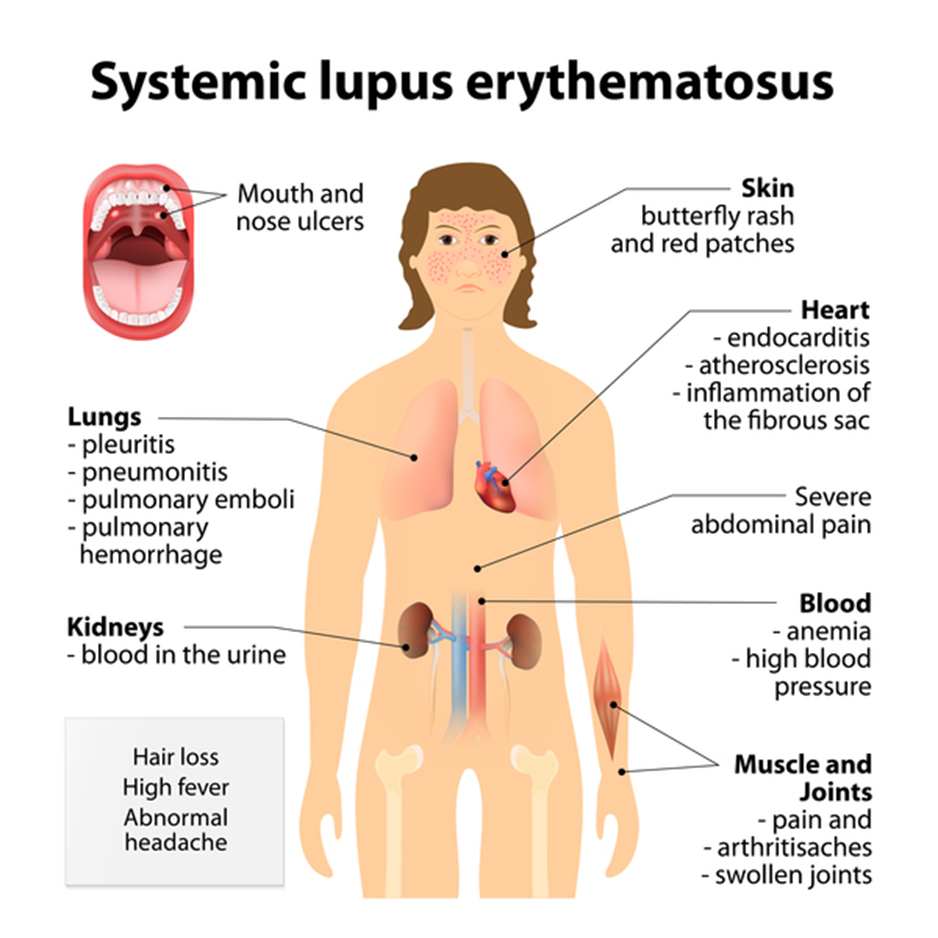A nurse is reinforcing skin care teaching with a client who has systemic lupus erythematosus. Which of the following statements by the client indicates an understanding of the teaching? (Select all that apply.)
"I will apply an SPF 30 sunscreen before gardening."
"I should cleanse reddened areas of my face with an astringent."
"I will gently pat my skin dry after bathing."
"I should apply lotion to my skin twice daily."
Correct Answer : A,C,D
Choice A reason: Applying an SPF 30 sunscreen before gardening is an appropriate statement, as it indicates that the client understands the importance of protecting their skin from sun exposure, which can trigger or worsen lupus flare-ups and cause skin rashes or lesions.
Choice B reason: Cleansing reddened areas of their face with an astringent is not an appropriate statement, as it indicates that the client does not understand that astringents can irritate or dry out their skin and aggravate their condition. The client should use mild soap and water or moisturizing cleanser to wash their face gently.
Choice C reason: Gently patting their skin dry after bathing is an appropriate statement, as it indicates that the client understands how to avoid rubbing or scratching their skin, which can cause injury or infection and delay healing.
Choice D reason: Applying lotion to their skin twice daily is an appropriate statement, as it indicates that the client understands how to keep their skin hydrated and prevent dryness or cracking that can increase their risk of infection or inflammation.
Choice E reason: Limiting time on tanning beds to 10 minutes is not an appropriate statement, as it indicates that the client does not understand that tanning beds emit ultraviolet rays that can harm their skin and worsen their lupus symptoms. The client should avoid tanning beds altogether and wear protective clothing and sunglasses when outdoors.

Nursing Test Bank
Naxlex Comprehensive Predictor Exams
Related Questions
Correct Answer is A
Explanation
Choice A: This is correct. Dehydration can cause electrolyte imbalance and affect the brain function, leading to confusion, dizziness, or lethargy.
Choice B: This is incorrect. Cool, clammy skin is a sign of shock, not dehydration. Dehydration can cause dry, warm skin.
Choice C: This is incorrect. Decrease in pulse rate is a sign of bradycardia, not dehydration. Dehydration can cause increase in pulse rate as the body tries to compensate for the low blood volume.
Choice D: This is incorrect. Increase in blood pressure is a sign of hypertension, not dehydration. Dehydration can cause decrease in blood pressure as the blood volume drops.
Correct Answer is A
Explanation
Choice A reason: Wearing an N95 mask when in the client's room is an appropriate instruction, as it can protect the AP from inhaling airborne droplets that contain pertussis bacteria, which can cause a highly contagious respiratory infection.
Choice B reason: Wearing a gown when caring for the client is not necessary, as pertussis is not transmitted by contact with body fluids or surfaces.
Choice C reason: Wearing a simple face mask when caring for the client is not sufficient, as it does not filter out small particles that can carry pertussis bacteria and enter the respiratory tract.
Choice D reason: Placing the client in a negative air pressure room is not indicated, as pertussis is not classified as an airborne infection that requires isolation in a specially ventilated room.
Whether you are a student looking to ace your exams or a practicing nurse seeking to enhance your expertise , our nursing education contents will empower you with the confidence and competence to make a difference in the lives of patients and become a respected leader in the healthcare field.
Visit Naxlex, invest in your future and unlock endless possibilities with our unparalleled nursing education contents today
Report Wrong Answer on the Current Question
Do you disagree with the answer? If yes, what is your expected answer? Explain.
Kindly be descriptive with the issue you are facing.
